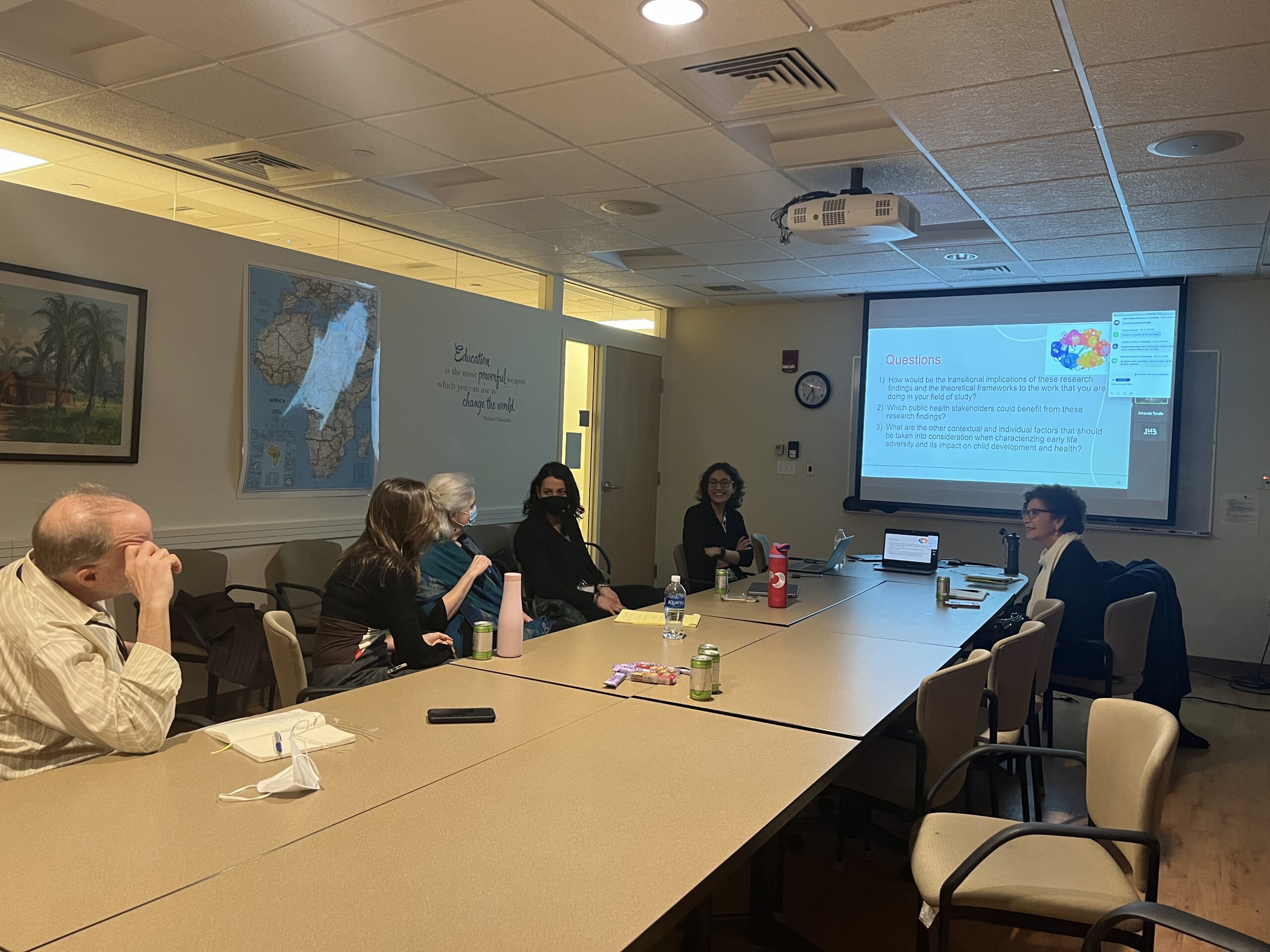Spring Research in Progress Meetings create space for interdisciplinary conversations
This semester the BU Wheelock Institute for Early Childhood Well-Being held monthly research in progress meetings as an opportunity to engage early childhood researchers in cross-disciplinary conversations about their work and its impact in the community.
The January meeting featured presenters Dr. Genevieve Guyol and Dr. Lindsey Locks. Dr. Guyol shared her current qualitative study looking at how poverty and prematurity affect parenting practices that strengthen early relational health – a dimension of healthy development that pertains to one’s early relationships and experiences. This sparked conversation about asking the right questions to investigate early relational health and the challenges associated with asking these questions. Dr. Locks presented a new proposal for a project on the human milk microbiome and child growth in India, inspiring discussion about research design and how to select and frame objectives to fit the needs of specific proposals.
In February we were joined by a team of colleagues from the BU Center on the Ecology of Early Development (CEED): Dr. Kyle DeMeo Cook, Sara Moran, MPP, and Olivia Nazaire, BA. The group shared their evaluation of a free universal preschool program using a racial equity lens. This equity-driven project opened up important conversations about implicit biases in the early childhood workforce and whether the workforce is prepared to serve a more diverse population when opportunities are made available to more children.
Our final Spring meeting featured three presenters whose work each looked at early development from a different perspective. Dr. Julie Herlihy shared an intervention study looking at an early development home visit program for children who are exposed to HIV but uninfected in Zambia. Discussion about the challenges of adapting measurement tools to specific linguistic and cultural challenges ensued. Dr. Mei Elansary presented a mixed methods study which looks at mothers who are in substance use recovery and their young children. This sparked conversation about the excitement and challenges of longitudinal qualitative research, and how to best analyze and share the resulting data. Finally, Dr. Nila Shakiba shared her work examining social-emotional development among children who have faced early life adversity. Her findings reinforced the importance of the parent-child dyad and led to discussion about how sometimes that relationship is undermined in pediatrics.
These meetings served as a way for early childhood researchers, students, and professionals to connect with one another and to support innovative practice in the field. We look forward to more fruitful conversations at our Fall meetings.
